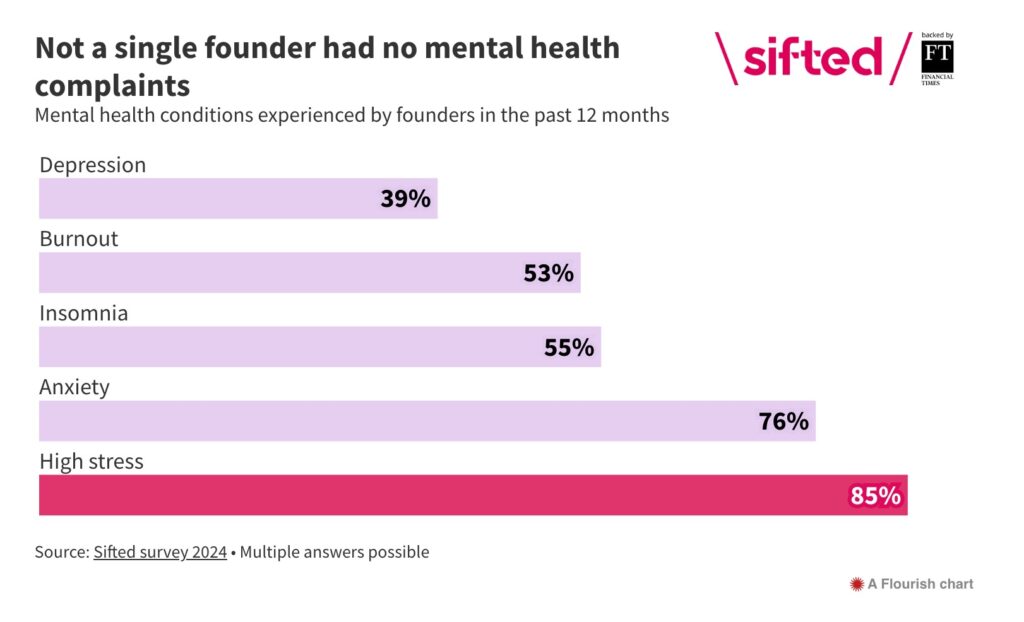Seven out of ten entrepreneurs suffer from mental problems, according to the Startup Snapshot platform

Almost no one reaches exit. In fact, almost no one builds a profitable company. The half-life of a startup in Spain it barely exceeds three years, as pointed out South Summit. And yet, the expectations created in contemporary digital culture subject entrepreneurs to brutal pressure.
Two months ago, Sifted published the results of a survey prepared from the testimonies of 156 founders. 49% admit that they are considering leaving startup created with blood, sweat and tears this very 2024, 65% spend less time with family and friends, 62% have cut back on their vacations, another 57% practice less sports and 43% eat worse.
In the last 12 months, the report continues, an overwhelming 85% of founders confess to having suffered severe stress episodes, without problems such as anxiety (76%), the insomnia (55%), the burned out worker syndrome (53%) and including the depression (39%) are of little importance. Even though the survey sample is small, the data is frightening.
One of the main reasons that pushes a co-founder to give up is the constant discussion with his partners. Hence, the pacts that regulate this relationship beyond friendship or camaraderie are so relevant. Investor pressure is the other big reason for abandoning ship. Nobody gives their money away for free.

In front of the fog, a lighthouse
Israeli Yael Benjamin founded Startup Snapshot in January 2020 as a shared data platform to bring transparency to the ecosystem. As soon as you access the website, a reflection catches your attention: «The paradox of stress occurs when a founder affirms how happy he feels as an entrepreneur, when reality dictates the opposite. Starting a business is a very hard experience.
In the seventh edition of the study that this organization deploys, the conclusions are as worrying as those of Sifted. One in ten founders suffers from panic attacks and seven out of ten have mental problems. Besides, 81% hide their stress and more than half make sure that not even their partners discover the pothole they are going through. The scenario becomes complicated when stigma is added to concealment. Younger entrepreneurs (and men more than women) believe that seeking psychological help is a sign of weakness.
The scourge of insomnia, already mentioned, is more pronounced the more capital is raised. And the degree of loneliness recognized by these founders is 7.6 points out of 10 (10 being extreme loneliness). It is very striking, almost implausible, that despite this handful of evidence, 93% of the founders declare that they would start a business again with their eyes closed. To the paradox of stress we should add the paradox of self-flagellation, although it is also possible to conclude that, beyond marketing, whoever builds a startup He is a true dreamer.
Fuente: The Objective









